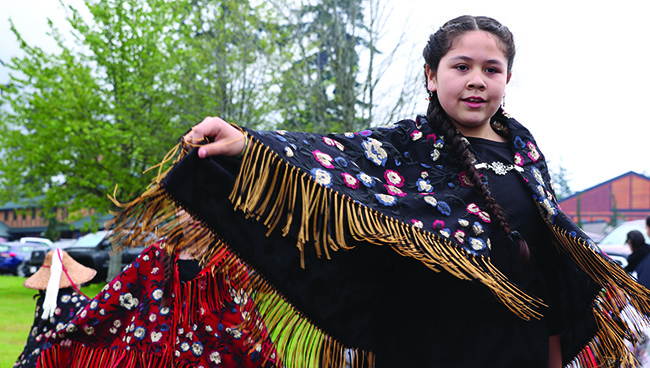
“Our treaties are everything. As Native American people, we need to protect our treaties as much as possible and thank our ancestors for fighting for what we have today. Without everything they suffered for, we wouldn’t have a lot of things that we have today, as far as our fishing and hunting rights. And also, just being Native American in general – to be able to sing our songs, carry our culture, and preserve that for our future generations.”
– Josh Fryberg, Tulalip tribal member
By Kalvin Valdillez, Tulalip News
On a chilly Friday evening, the descendants of the sduhubš were joined by several families from nearby tribes to commemorate the 1855 Treaty of Point Elliott. With temperatures in the low 30s, the people found warmth around large firepits on the inside of the cedar plank longhouse that overlooks Tulalip Bay. Through strong drumming and powerful singing, the tribes conducted cultural and spiritual work at the yearly potlatch, known locally as Treaty Days.
Each winter, the tribes take time to celebrate their culture, honor longstanding traditions, and also thank their ancestors who signed the 1855 Treaty of Point Elliott. The treaty guaranteed the continuance of their traditional way of life, pertaining to fishing, hunting, and gathering rights, and it also identified a number of tribes, including Tulalip, as sovereign nations.
Virginia Carpenter, Tulalip Elder, stated, “The treaty is important to me because it gives us a permanent place to live and because it gives us all of our rights. If we didn’t have the treaty, we really wouldn’t have anything, they would’ve kicked us off of our land. It’s an umbrella for us to live safely and the way we want to live.”
January 22 marked 169 years since the historical signing took place at present day Mukilteo. Close to 5,000 Coast Salish people gathered to witness their leadership negotiate terms of the treaty with Washington Territory Governor Isaac Stevens. The 2024 Treaty Days gathering was held at Tulalip on January 19, 110 years after the first treaty commemoration event was organized by William Shelton in 1914.
“Treaty Days is a commemoration of the signing of the 1855 Point Elliot that affected the coastal tribes,” shared Tulalip Elder, Inez Bill. “At this time, we remember and acknowledge our ancestors who signed the treaty and reflect on the importance of that treaty – who we are as a people and how to continue our way of life.”
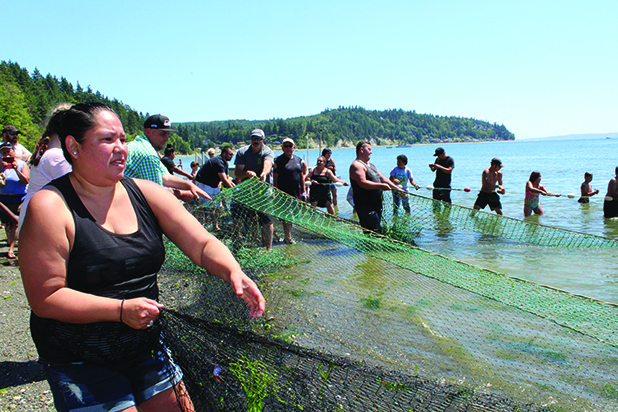
With future generations in mind, the tribal leaders ceded millions of acres of their ancestral land to the US government for white settlement, which currently makes up Washington’s King, Snohomish, Skagit, and Whatcom counties. In exchange for ceding such large portions of land, each tribe reserved the right to fish at their usual and accustomed grounds and stations, as well as the right to hunt and gather on open and unclaimed lands. In addition, the treaty established home bases for the tribes, which are now known as the Tulalip, Swinomish, Lummi, and Port Madison reservations.
Tulalip Chairwoman, Teri Gobin, said, “Our people met together, and all agreed to sign the treaty. By ceding that land, from the water to the mountains, they guaranteed us our treaty rights for future generations. I’m so glad that our ancestors thought about that – because they were trying to protect our tribes.”
Because of those rights that the tribal ancestors fought to include in the 1855 Treaty of Point Elliott, each Tribe has grown and persevered over the years, with the ability to govern their own affairs while also continuing their traditional way of life.
Tribal member Brian Green expressed, “The treaty is literally my livelihood. We fight for our rights every day – fight to keep our treaty rights. I want my kid’s kids to come out here and be able to exercise their treaty rights. Not everyone has to be a fisherman, but it should be there if they want to exercise it.”
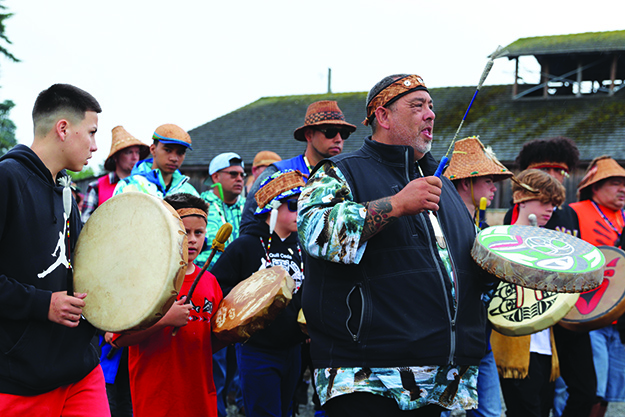
Ever since the treaties were signed in the late 1800’s, tribal nations across America have worked hard to protect and defend their treaty rights whenever the US government attempted to ignore or defy them, in instances such as the Fishing Wars in the ‘70s. Thanks to the fearless activism of tribal leaders such as Billy Frank Jr., the Fishing Wars conflict ultimately led to the Boldt decision in 1974, where the U.S. District Court for the Western District of Washington and the U.S. Court of Appeals for the Ninth Circuit reaffirmed that the fishing rights of the northwest treaty tribes were the supreme law of the land.
“Treaty rights are an inherent right,” explained Ryan Miller, Tulalip Tribes Director of Treaty Rights and Governmental Affairs. “Treaty rights were not given to tribes. It’s a common misconception that the government gives Native peoples special rights. That’s the exact opposite of how it works. Tribes are sovereign nations; they give up rights and they retain rights. Treaty rights are rights that are not given up by tribes, and they’re upheld by the federal government as part of their trust relationship with the treaty tribes.”
In 1905, 50 years after the 1855 Treaty of Point Elliott was signed, an Indian boarding school was established on the Tulalip reservation. Through brutal and cruel practices, the US government began assimilation efforts to ‘kill the Indian, save the man’. During this dark era in American colonial history, Native children were forcibly removed from their families and had to attend the catholic boarding schools. If the kids were caught speaking their ancestral language or practicing their culture, they were often physically punished. Many children did not make it out of the boarding schools alive, and those who did would unintentionally pass that horrific trauma down their bloodlines.
At this same time, tribal adults and elders were also banned from cultural and spiritual practices. Longhouses across the region were burned down and those found guilty of carrying on their traditions were jailed and viewed as demonic.
Against all odds, and in the face of adversity, Tulalip tribal member William Shelton took the initiative to ensure that the cultural lifeways of his people would not be lost and would live on well into the future. Through persistent correspondence with the Tulalip Superintendent and the US Secretary of Interior, Shelton convinced the government to allow Tulalip to build a longhouse along their shore in 1912.
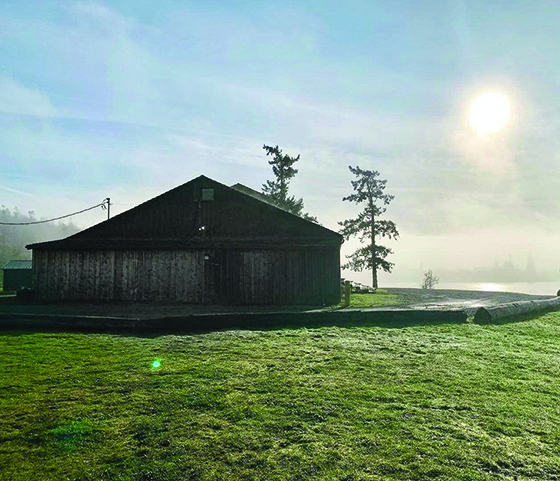
The longhouse, Shelton detailed in his letters with the government, would serve as a place where all of the tribes could celebrate the treaty together on an annual basis. Following its construction, the longhouse became a safe space where the tribes could engage in their culture once year from 1914 until 1967, when the current smokehouse was built to replace Shelton’s historical longhouse.
“Treaty Days is really important to me because all of us, as sduhubš people, come from that longhouse way of life,” expressed Tribal member, Roselle Fryberg. “That’s the way our ancestors prayed, that was their healing, that’s how they protected their families. And it was also a way for our people to celebrate our treaty at a time when practicing our culture was outlawed, and we were thrown in jail for singing and dancing.”
Students at the boarding schools were able to attend the Treaty Days celebration and under this guise, the tribes were able to preserve their traditions and pass on their teachings to the next generation year after year. And though the Tulalip Boarding School was closed in 1932, the descendants of the signatories of the 1855 Treaty of Point Elliott continued to gather at the smokehouse every January to honor the treaty and take part in cultural practices that were once prohibited throughout the country.
“It’s spiritual healing,” voiced Tulalip tribal member, Celum Hatch. “When I go, it’s because of the strength of everybody’s songs. The strength within those four walls gets me through the next couple of months. When I go in there, I go with a good head. Because I know what I’m going in with, I’m not walking out with. I go for healing. And I go to help everyone else and support them.”
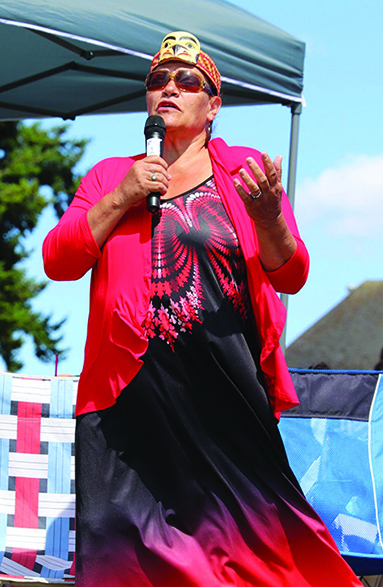
To this day, Treaty Days continues to be a major event that tribal members across the region look forward to every year. And as William Shelton envisioned, the longhouse remains a sacred place where innumerable teachings of the culture and traditions are passed along and kept alive. Many of those songs, dances, spiritual practices, and stories made it through the passage of time and are still practiced more than 100 years after they were originally banned.
Said Tulalip Elder, Ray Fryberg, “We gave up a lot in the treaty to keep our sovereignty – to be able to determine our own future and our own direction in our tribal path. And also, living on the reservation – protecting those rights that were reserved for us, as well as the spiritual and cultural way of life. We have the responsibility to revisit the treaty all the time, so we know we are keeping our younger people abreast and informed as much as possible.”